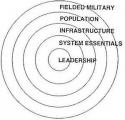Military officers and policymakers, in their search for solutions to problems in Afghanistan, have considered empowering “the tribes” as one possible way to reduce rates of violence. In this report, the HTS Afghanistan RRC warns that the desire for “tribal engagement” in Afghanistan, executed along the lines of the recent “Surge” strategy in Iraq, is based on an erroneous understanding of the human terrain. In fact, the way people in rural Afghanistan organize themselves is so different from rural Iraqi culture that calling them both “tribes” is deceptive. “Tribes” in Afghanistan do not act as unified groups, as they have recently in Iraq. For the most part they are not hierarchical, meaning there is no “chief” with whom to negotiate (and from whom to expect results). They are notorious for changing the form of their social organization when they are pressured by internal dissension or external forces. Whereas in some other countries tribes are structured like trees, “tribes” in Afghanistan are like jellyfish.1
Instead of “tribal engagement” in Afghanistan, the HTS Afghanistan RRC advocates for “local knowledge, cultural understanding, and local contacts,” in the words of David Kilcullen.2 There are no shortcuts. What this means in practical terms is a need to focus on ground truth, looking at local groups and their conflicts, rather than arriving with preconceived notions of how people should or might, given the proper incentives, organize themselves tribally. Most of Afghanistan has not been “tribal” in the last few centuries, and the areas that might have been (majority-Pashtun areas that make up parts of Regional Commands South and East) have changed drastically over the past 30 years.
Pashtuns may choose to organize themselves along many different forms of identity, and may be conscious of belonging to more than one form of community simultaneously. Pashtuns’ motivations for choosing how to identify and organize politically— including whether or not to support the Afghan government or the insurgency—are flexible and pragmatic. “Tribe” is only one potential choice of identity among many, and not necessarily the one that guides people’s decision-making.












Bookmarks